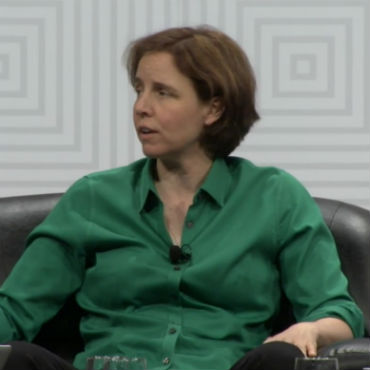Smith talks innovation at SXSW

The federal chief technology officer says top-notch techies can be drawn to government service, whether it’s for "two weeks, three months [or] longer.”

U.S. Chief Technology Officer took part in a March 16 discussion on innovation at SXSW.
If you listen to some of the technoscenti, South by Southwest is not as nearly as cool as it used to be. But the annual Austin, Texas-based festival of film, music and tech remains a go-to venue for government officials seeking to sell the idea of innovation in federal IT.
This year's government speakers included U.S. Chief Technology Officer Megan Smith, who took the stage on March 16 to discuss "how innovation happens" with Google Executive Chairman and Aspen Institute President Walter Isaacson.
A Google veteran herself, Smith knows something about cultures of innovation -- and she argued that the gap between the public sector and Silicon Valley is closing. "In this country where we make Google, we make Amazon [and] we make Facebook -- these kinds of amazing products and consumer services -- why aren't these people in government?" she said. "What we're seeing is that they are beginning to come."
Smith also spoke of the administration's desire to engage technical experts in the policymaking process as well lure them into government IT roles. Acknowledging that not everyone is willing or able to take a permanent job in government, she said she and other administration leaders "hope that people will consider it part of their tech career that you will serve government at some point…whether it's two weeks, three months, short periods [or] longer."
Smith, Schmidt and Isaacson agreed that one of the surest paths to innovation -- whether in government or a tech startup -- is to increase inclusion and diversity for the team or project in question. They cited several ways to advance those goals, including:
- Working to eliminate "connectivity deserts," where Internet access is limited or unavailable;
- "Debugging at the local level," to engage and connect local communities with one another;
- Eliminating unconscious gender biases;
- Increasing entrepreneurial education at both the primary and secondary levels;
- Making higher education accessible and free to all citizens; and
- Reforming education systems to expose children to technical skills, such as coding, at an early age.
NEXT STORY: Congratulations to the 2015 Federal 100


